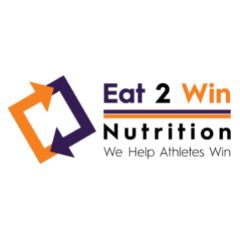Meal Planning for Athletes:
How to Overcome the Monotony and Scale Your Efforts
Q&A for Session #7
Sports Nutrition Symposium 3.0
Wednesday June 23rd, 2021 @ 7 pm CST
This presentation will provide an overview of how to create meal plans for athletes. The attendee will be able to learn how to scale their efforts and work more efficiently.
All live sessions are free to attend. If you want lifetime access to the sessions from Sports Nutrition Symposium 1.0, 2.0 and 3.0 then check out the VIP Pass!
- I'm currently working with high school athletes in a new workplace. I never worked for high school athletes before. How to create a meal plan if some of them are still picky eaters? In case there are many things that they don't like.
- Work with foods that the athletes like. It's not meant to be perfect eating schedule. Try to educate the athlete in a way that they would understand their food choices, for example: describe carbohydrate with "state champ carbohydrates" vs. "miss playoff carbohydrates". Or if an athlete doesn't like veggies, then start by working on healthy fruit to add to their diet. Also try to work with the parents and have them involved with their childs' care.
- How do you actually get people to listen to you and get someone to follow a plan? I find it difficult to get past “eat vegetables” or “do you know what carbs are”.
- I prefer to work with high school athletes vs professionals because you're more likely to have a bigger influence at a younger level. On the other hand working with professionals can help build trust and great for the resume. Also, consider that some people want to know who you've worked with and the types of sports you have expierence working with. For example, do you have experience with baseball vs. figure skating? Remember that you're not there to change the entire landscape of an athletes eating habits, but more so helping them understand what certain foods can do for them and their performance. Last but not least, when providing an athlete with a plan, make sure you understand the level of education that athlete is at.
- For an adolescent swimmer who swims in the a.m. before school and in the afternoon, how should he/she time their food intake? especially that practice in the morning is around 5:30 - 6:15 am. (sleep, school work, etc …).
- I'd recommend it be handled as a case by case scenario. If they don't want to eat in the morning, then start with morning practice. Try (???) which is a high carboydrate liquid that works well in the stomach. Have a goal to at least fuel at little bit right before practice, but overall focus on a quality post- workout meal. Again, try and tailor it to the athlete.
- How do you make sure your athlete is following the basic nutrition principles? do you have weekly meet ups? do you use an app?
- We do use the app and have parent accountability . Surround the athlete with individuals thatinteract and play a role in the athletes day-to-day. For example, if parents aren't involved, then focus energy working with other individuals that are involved with the athlete.
- Do you ever have clients do food picture logs to see how an athlete is progressing in changes?
- Yes! The Eat2Win app is great for that.
- Do you prefer mass gainer intake for young athlete?
- We can use it, but we'd prefer to add something to it, bananas, fruits, etc. Aim to use it once per day. For example, if an athlete needs 5000 kcal/day, then it will be difficult to get this all through foods, so we need to find other ways to add kcal and this can come in the form of weight gainer.
- How close to bedtime do you recommend snacks? do you account for the effect this might have on quality of sleep? especially in those athletes who have to wake up earlier.
- Time is irrelevant. A high performance athlete does not need to stop eating at a certain time of day or night.
- Time is irrelevant. A high performance athlete does not need to stop eating at a certain time of day or night.
- Do you ever calculate calories for your athletes to get a baseline? And if so, what equation do you use for athletes?
- Yes absolutely! I use Mifflin-Harris benedict for base needs and multiply it by an activity factor. I also use NutriStrategy to help calculate based on sport, type of athlete. To create a plan, it's important for me to understand the macronutrients that an athlete needs.
- How far do you spread out post-workout/exercise shakes to meals (dinner)?
- It depends. It's really specific to the athletes goals and calorie needs. For example, if an athlete needs to work out 4-6p, I'd recommend post-workout snack at 615p, dinner at 715p, snacks between 9-10p. Try to evenly spread out throughout the day if possible.
- What are the 3 most important questions you feel are key to ask your athlete clients?
- I don't usually limit it to 3, but if I had to choose, then overall I need to know when the athlete eats, what the athlete eats, and the athlete's schedule.
- Recommendations for starting your own club/high school/collegiate sports nutrition program?
- 1. Resources (fueling stations, 1:1s, etc.) 2. Find an ally that will support what you do. For example, Athlete directors, administration, etc. 3. It's important to understand the budget in order to know what resources they can provide you. If it's zero, then we need to get creative. Is there a booster club? What about parents? collegiate level - what's the college program. Keep in mind, do not work for free! Don't give up your services. If you don't have any experience, try to shadow or work under someone first. Try to aim for 1-2 years of practical experience before going solo.
- Can you please share the name of that chart for calorie needs per activity again? Nutra something?
- NutraStrategy.com (or email Tavis at tpiattoly@mysportsd.com)



Facebook comments